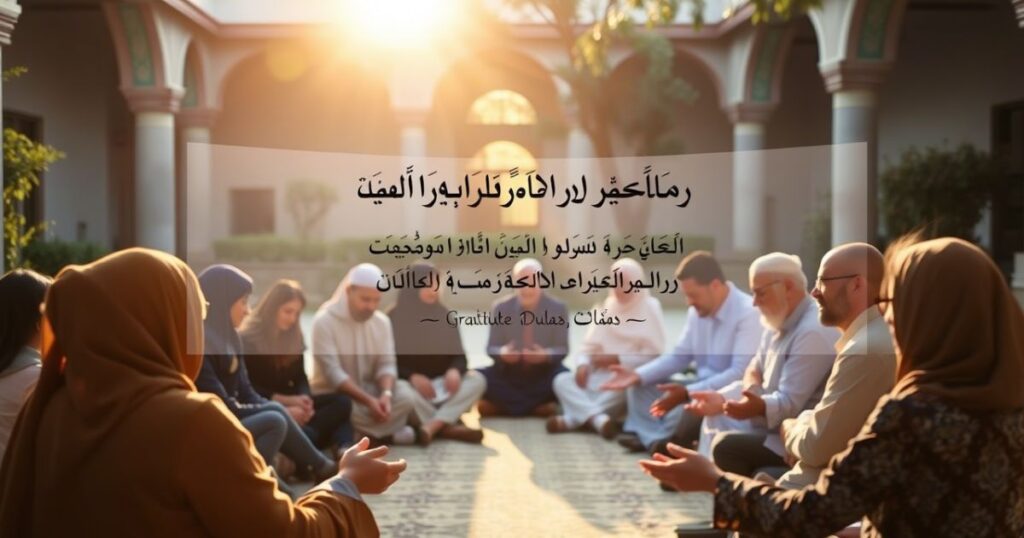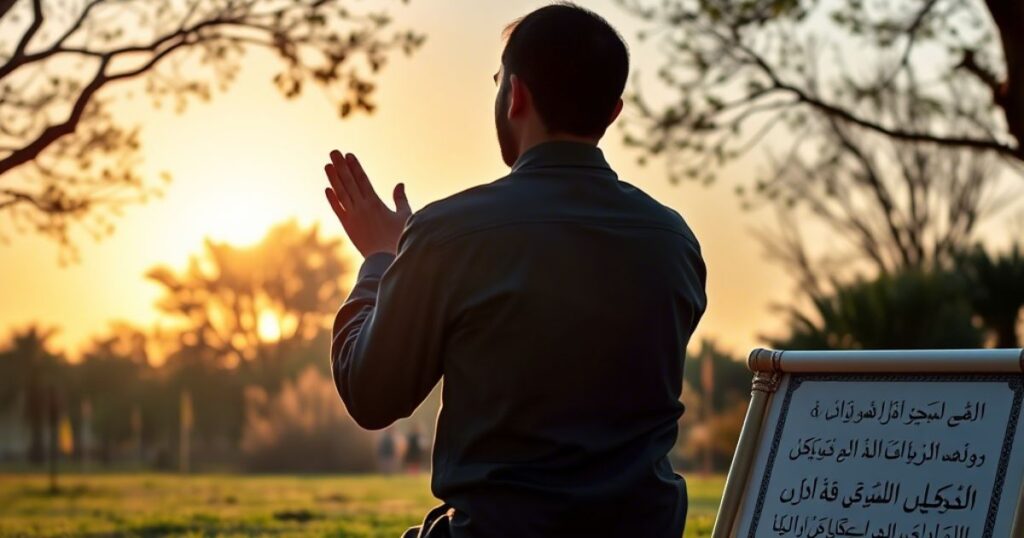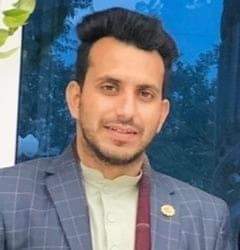Gratitude is not just a feeling in Islam it’s a form of worship. Through Gratitude Duas, Muslims express their appreciation for the endless blessings from Allah , whether big or small. From the air we breathe to the food on our tables, every moment is a divine gift waiting to be acknowledged. The Prophet Muhammad was a shining example of gratitude. Even with his status as the most beloved to Allah, he still stood in night prayer until his feet swelled, simply saying, Should I not be a grateful servant?
Incorporating Gratitude Duas into daily life allows you to reframe challenges, amplify blessings, and unlock a deeper connection with your Creator. In this article, we’ll explore the concept of gratitude in Islam, 10 authentic dua of thankfulness, the spiritual benefits, examples from the lives of the prophets, and practical ways to build a life centered on shukr.
Gratitude in Islam. A Core Principle
In Arabic, gratitude is called shukr, and it means more than saying thank you. It means recognizing the source of a blessing, expressing thanks with the tongue, and using that blessing in a way that pleases Allah.
Allah commands gratitude repeatedly in the Quran
And be grateful to Me and do not deny Me. Quran 2.152
Gratitude protects the heart from arrogance, envy, and heedlessness. It transforms our focus from what we lack to what we possess. When Muslims say Dua, they fulfill this divine command and foster emotional well being, contentment, and spiritual clarity.
10 Powerful Gratitude Duas That Magnify Your Blessings
Below are ten meaningful duas every Muslim can recite to express heartfelt thanks to Allah. Each includes the Arabic, translation, and practical reflection.
1. الْـحَمْـدُ للهِ عَلَى كُلِّ حَالٍ
Alhamdulillāh ‘alā kulli ḥāl
Praise be to Allah in every circumstance.
This dua reflects complete surrender to divine will. Whether things go well or take an unexpected turn, it reminds us to trust in Allah’s plan.Reflection. Reciting this dua during hard times can prevent despair. It gently reminds the soul that tests are temporary, and every condition has a purpose.
2. رَبِّ أَوْزِعْنِي أَنْ أَشْكُرَ نِعْمَتَكَ
Rabbi awzi’nī an ashkura ni’mataka allatī an’amta ‘alayya Quran 27.19
My Lord, inspire me to be thankful for Your favor which You bestowed upon me.
This prophetic dua shows that even gratitude is a gift that we need Allah’s help to fulfill.
Reflection.Recite this dua during reflection time or before bed to stay mindful of the blessings you’ve received that day.
3. سُبْحَانَ اللَّهِ وَبِحَمْدِهِ
Subḥānallāhi wa biḥamdih
Glory and praise be to Allah.
Light on the tongue but heavy on the scales, this is one of the most beloved phrases to Allah.
Reflection.Say it after every prayer or while walking to work. It’s a spiritual boost in less than two seconds.
4. الْـحَمْـدُ للهِ الَّذِي بِنِعْمَتِهِ تَتِمُّ الصَّالِحَاتُ
Alhamdulillāhi alladhī bini’matihi tatimmu ṣ-ṣāliḥāt
All praise is for Allah by whose favor good deeds are completed.
Perfect for when you finish something good a fast, a project, a kind act.
Reflection. Recite this to humbly acknowledge that every achievement is by Allah’s grace.
5. اللَّهُمَّ أَعِنِّي عَلَى ذِكْرِكَ وَشُكْرِكَ
Allāhumma a’inī ‘alā dhikrika wa shukrika wa ḥusni ‘ibādatik
O Allah, help me remember You, thank You, and worship You in the best manner.
This dua was taught by the Prophet to Mu’adh RA, showing its great importance.
Reflection. Use this after salah to ask for consistency in gratitude and worship.
6. الْـحَمْـدُ للهِ رَبِّ الْعَالَمِينَ حَمْدًا كَثِيرًا طَيِّبًا مُبَارَكًا فِيهِ
Alhamdulillāhi Rabbil-‘Ālamīn ḥamdan kathīran ṭayyiban mubārakan fīh
Praise be to Allah, Lord of the worlds a praise that is abundant, pure, and blessed.Reflection. Use this dua to elevate your gratitude especially after meals, prayers, or moments of relief.
7. شُكْرًا لِلَّهِ وَنِعْمَةٌ
Shukran lillāh wa ni’mah
Thanks be to Allah, and what a blessing!
This is a casual way to give thanks throughout the day.
Reflection. Say this dua every time you notice a small joy a sip of water, a kind message, or a sunny morning.
8. الْـحَمْـدُ للهِ عَلَى نِعْمَةِ الْإِسْلَامِ
Alhamdulillāh ‘alā ni’matil Islām wa kafā bihā ni’mah
Praise be to Allah for the blessing of Islam; and it is sufficient as a blessing.
Reflection. When worldly blessings fade, this dua helps re-center your gratitude toward the greatest gift guidance.
9. لَا إِلَهَ إِلَّا اللَّهُ… وَلَهُ الْحَمْدُ
Lā ilāha illallāh waḥdahu lā sharīka lah… wa lahu l-ḥamd
None has the right to be worshipped but Allah to Him belongs all praise.
Reflection. This is a comprehensive zikr. Use it to start or end your day to ground yourself in Tawheed and gratitude.
10. الْـحَمْـدُ للهِ الَّذِي أَحْيَانَا بَعْدَ مَا أَمَاتَنَا

Alhamdulillahilladhī aḥyanā ba’da ma amatana wa ilayhi an nushur
All praise is due to Allah, who gave us life after death, and to Him is the return.
Reflection. Say this upon waking to begin the day with gratitude and purpose.
The Spiritual Benefits of Gratitude Duas
Engaging regularly in Gratitude Duas doesn’t just improve your emotional well-being it deepens your spirituality. According to hadith, the Prophet once said,Allah is pleased with His servant when he eats something and praises Him for it, or drinks something and praises Him for it. Muslim.
By cultivating gratitude, you gain.
- Spiritual expansion: Thankfulness softens the heart for dhikr and Quranic reflection.
- Increased blessings: As promised in Qur’an 14:7, gratitude unlocks further barakah.
- Patience during hardship: Grateful people endure with dignity, recognizing Allah’s wisdom.
- Protection from arrogance: Thanking Allah helps you realize you are not the source of your success.
- Strengthened relationship with Allah: Every dua reaffirms your reliance on Him and love for Him.
Stories from the Qur’an and Sunnah About Gratitude
Islamic tradition is rich with examples of gratitude in action
- Prophet Ayyub AS: After enduring years of suffering, he remained thankful. When Allah restored his health and wealth, he did not forget to express gratitude.
- Prophet Musa AS: When Allah saved Bani Israel from Pharaoh, Musa proclaimed. If you are grateful, I will surely increase you.This verse became one of the most quoted about gratitude in the Qur’an.
- The Prophet Muhammad : His gratitude was shown in all areas of life from simple meals to major victories. Even when given ease, he would say, “O Allah, all praise is due to You. You are the light of the heavens and the earth.”
These stories show that Gratitude Duas aren’t just phrases they are transformative responses to divine grace.
How to Integrate Gratitude Duas into Daily Life
Creating a habit around Gratitude Duas takes intentional practice:
- Start your day with gratitude: Say the waking up dua and Alhamdulillah before even rising.
- Link duas to routines: After meals, before sleep, and when entering or leaving the house.
- Set reminders: Phone alarms or sticky notes with short duas can prompt reflection.
- Teach your family: Encourage your children or spouse to recite one dua each day.
- Keep a gratitude journal: Pair each written blessing with a relevant dua.
- Use quiet moments: Walking, waiting, or commuting are ideal for reflection and remembrance.
- Be mindful, not mechanical: Understand the meanings so that your gratitude flows from the heart.
Frequently Asked Questions About Gratitude Duas
1. Are Gratitude Duas only for good times?
No. They are especially powerful when said during trials, reflecting contentment with Allah’s decree.
2. Can I make my own dua to express gratitude?
Yes. Personal duas are encouraged. You can thank Allah in any language and in your own words.
3. Do I need wudhu to say Gratitude Dua?
No. While wudhu is preferred, dhikr and dua can be done at any time.
4. How often should I recite Gratitude Dua?
As often as you remember. The more frequent, the more deeply it transforms your mindset.
5. What if I don’t feel grateful?
Start with words feelings often follow actions. Reflection on blessings will gradually soften the heart.
You may also like:PrayerTechy
6. Are there Gratitude Dua from the Qur’an?
Yes. Qur’an 27.19 is a beautiful example from the story of Sulayman AS.
7. Is saying Alhamdulillah” after sneezing also gratitude?
Yes. It’s a Sunnah act and a way of acknowledging Allah’s care even in small bodily functions.
8. Can I say Gratitude Dua silently?
Yes. Allah hears every whisper and even your thoughts.
9. Will gratitude erase sins?
While shukr itself doesn’t expiate sins like istighfar, it protects from pride and earns Allah’s pleasure.
10. Do Gratitude Duas bring mental peace?
Yes. Gratitude helps reduce anxiety, envy, and dissatisfaction promoting inner tranquility.

You may also like:PrayerTechy
Conclusion
Gratitude in Islam is a lifestyle, not just a phrase. By incorporating Gratitude Duas into your daily worship, you shift your focus from what’s missing to what’s meaningful. These simple yet powerful supplications invite barakah, protect your heart from arrogance, and deepen your connection with Allah. As the Qur’an promises, “If you are grateful, I will increase you.” Begin today choose one dua, say it from the heart, and let gratitude reshape your life from the inside out.
You may also like:PrayerTechy
You may also like:PrayerTechy

Hi I’m Hamza Basharat SEO content writer with 4 years of experience and founder of PrayerTechy.com. I combine faith and strategy to help people discover how to pray with purpose, using well optimized, impactful content rooted in scripture and spiritual growth.



1 thought on “Gratitude Duas That Magnify Your Blessings”